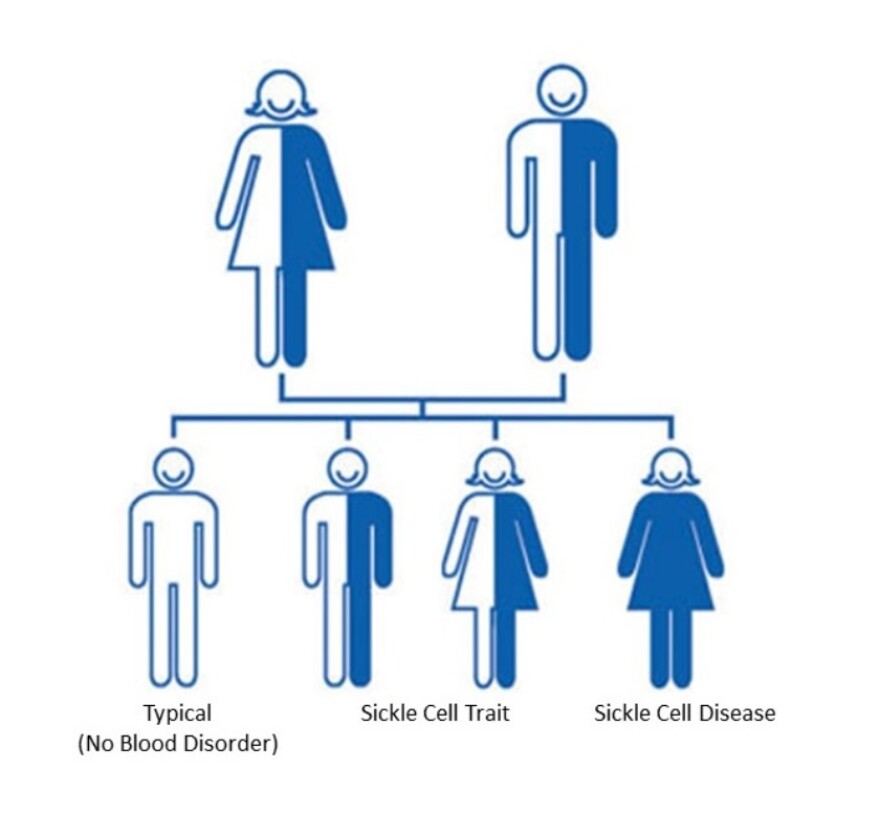Tarrant County gave an official explanation Monday for why it skipped a promised external review of a death in jail custody.
In December, Tarrant County Commissioners approved a contract with the Illinois forensic pathologist J. Scott Denton to review the autopsy of Robert Miller. Miller died in jail custody in 2019, and a Fort Worth Star-Telegram investigation last year cast doubt on his official cause of death: sickle cell crisis.
The Star-Telegram found Miller likely didn’t have sickle cell disease and was pepper sprayed repeatedly before he died.
KERA learned over the weekend that Denton’s review never happened, because the county never sent him any materials to review.
The county explained why it never sent anything to Denton in a press release Monday.
“With ongoing questions by the media and his family concerning Mr. Miller’s death, Tarrant County sent blood samples to the nationally acclaimed Mayo Clinic for confirmation that Mr. Miller had sickle cell trait,” according to the press release. “The Mayo Clinic confirmed the cause of sickle cell crisis originally diagnosed by the Tarrant County Medical Examiner’s Office was due to sickle cell trait.”
Sickle cell trait is different from sickle cell disease, according to the Centers for Disease Control and Prevention. People with sickle cell trait inherit one normal gene and one sickle cell gene. They usually do not have any of the symptoms of sickle cell disease, but if they have children, they can pass on the trait.
In rare cases, "People with [sickle cell trait] might experience complications of [sickle cell disease], such as ‘pain crises’ and, in extreme circumstances, sudden death,” the CDC states. “More research is needed to find out why some people with SCT have complications and others do not.”

Tarrant County’s press release states the Mayo Clinic confirmed the cause of Miller's sickle cell crisis was due to sickle cell trait.
The American Society of Hematology represents physicians and scientists who study blood and blood-related diseases. The society’s website states that sudden death in people with sickle cell trait is so rare, “cases where this is cited as the sole cause of death, or a major contributor must be viewed with profound skepticism.”
“Sudden death is an extraordinarily rare occurrence in sickle cell trait and the finding of sickle cell trait is unlikely to supersede other inflicted traumas as the cause or major factor in death,” their website states.
The press release assures the public that Denton never received any payments from the county.
The release does not explain who made the decision to nix Denton’s review, or when. It also does not explain why the county decided not to probe further into Miller's pepper spraying or lung injuries, as found by the Star-Telegram.
As of Monday, Miller’s manner of death on the Tarrant County Medical Examiner’s portal was listed as “undetermined.” Manner of death is different from cause of death, and it indicates if someone died by homicide, suicide, an accident or natural causes.
The Medical Examiner’s Office previously reported that Miller’s manner of death was natural causes, according to the Star-Telegram.

The county’s press release ended by saying the county will provide no further comment, because Miller’s widow, Shanelle Jenkins, is currently suing over his death.
Commissioner Manny Ramirez said in an interview Monday he could not explain why the county decided not to work with Denton, but he will encourage transparency.
"I can’t dig into the case specifically due to pending litigation, but I'll tell you this: that we are in favor of absolute transparency when it comes to any and all information that we have in our custody, and then once the legal process is concluded, it’ll be my recommendation that we share absolutely every shred of information that we have about the case,” Ramirez said.
County Judge Tim O’Hare said in a statement that he does not believe Tarrant County Jail staff did anything wrong.
“I possess the deepest sympathies for Mr. Miller's friends, family, and loved ones, but I believe that the matter of his death has been treated with the seriousness that our residents should expect, and deserve, from their government, and at every step no wrongdoing has been uncovered,” O’Hare wrote.
KERA responded to the county’s press release with a list of questions, including why Miller’s manner of death is listed as undetermined and who made the decision not to send any materials to Denton.
Got a tip? Email Miranda Suarez at msuarez@kera.org. You can follow Miranda on Twitter @MirandaRSuarez.
KERA News is made possible through the generosity of our members. If you find this reporting valuable, consider making a tax-deductible gift today. Thank you.







